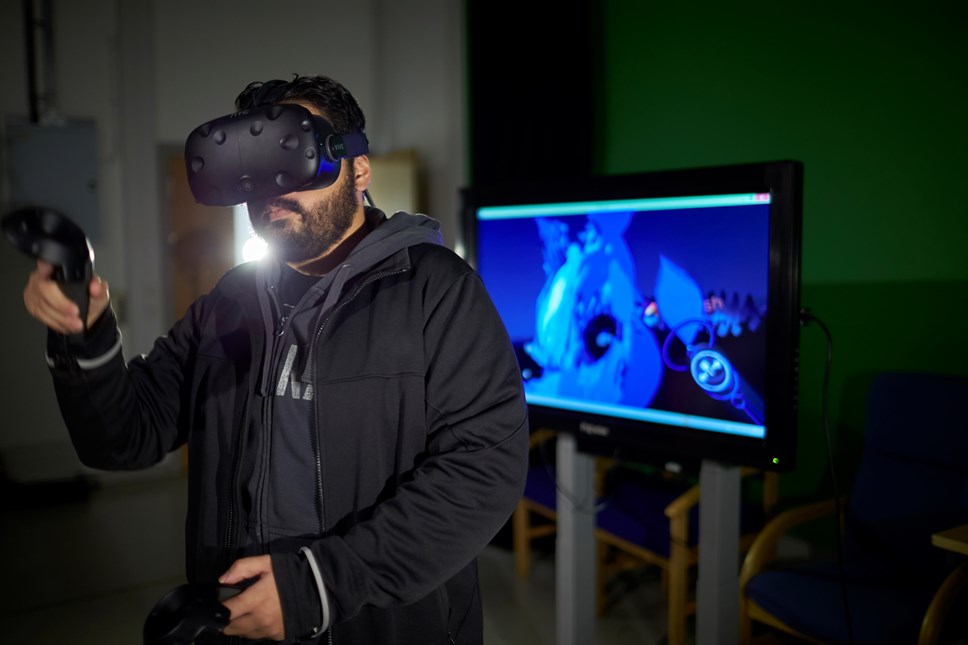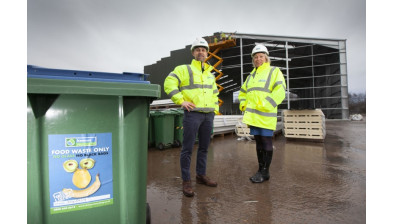£2.7m funding announced for university-led low carbon SME projects
Three university-led projects have successfully received funding from Scottish Enterprise’s Low Carbon Challenge Fund and will support SMEs across industries from transport to energy – including a unique programme combining food and drink with computer games.

The Low Carbon Challenge Fund is a partnership between the Scottish Government and Scottish Enterprise with total investment of £2.79 million with £1.39m from the European Regional Development Fund and match-funding from the projects.
The fund was set up last year and provided opportunities for public, third sector and academic institutions to, in turn, develop projects for SMEs to support low carbon innovation and manufacturing capabilities across Scotland and the successful projects are:
- Abertay University: Transforming Net-Zero
- University of St. Andrews: Translating Hydrogen into Action
- University of Strathclyde: Supply Chain Development for Lifetime Extension and Reuse.
Andy McDonald, Scottish Enterprise head of low carbon transition, said: “The Low Carbon Challenge Fund is a catalyst to support economic opportunities in Scotland and nurture businesses to develop net zero products, processes and services.
“I look forward to seeing these pioneering projects take shape as they have the potential to transform the way companies work whether it is reducing manufacturing waste, future-proofing transport or developing new hydrogen products.
“The three successful projects will harness the expertise of public sector partnerships and engage businesses in Scotland towards the transition to a net zero nation.”
A recent report from Zero Waste Scotland highlighted that food and drink companies in Tayside and Perth could save millions through the adoption of a more circular economy and Abertay University’s Transforming Net-Zero project aims to embrace this.
The project will provide advice to food and drink SMEs on energy use, water technology and carbon sequestration as well as prepare companies for new net zero market opportunities.
In addition, the university will create a unique digital platform to support the design and adoption of low carbon products and services, tapping into expertise from academics working in video games.
Abertay is Europe’s leading university for video games education and has pioneered the use of ‘applied games’ and gamification in business.
Dr Iain Donald of Abertay’s School of Design and Informatics, said the new project would explore how game design could enhance ‘nudging behaviours’ that help keep players engaged, and how this approach can be adapted to influence perceptions around low carbon products.
He added: “This is a hugely exciting project for Abertay which will draw in expertise from all three of our Academic Schools to explore creative new low carbon solutions.
“Video games are incredibly successful at hooking a player’s interest and at influencing choices and thinking. In this project. we will be looking at ways in which these techniques can be used to prompt positive behaviours in members of the public when it comes to making low-carbon choices.”
The University of St Andrews, in partnership with the University of Strathclyde, will deliver the ‘Translating Hydrogen into Action’ project that will complement the endeavours of the newly formed Hydrogen Accelerator facility funded by Transport Scotland.
This project will assist companies throughout the hydrogen supply chain, from fuel cell manufacturers, to energy specialists, to create a strong Scottish OEM-base and is pertinent as Scotland strives to achieve net zero targets and create jobs within the hydrogen sector.
The university will provide a knowledge exchange programme informing companies of recent advances in energy storage technologies as well as access to specialised manufacturing and testing equipment.
The Low Carbon Challenge Fund will allow the project to identify innovation opportunities, provide advice around growth prospects including relevant funding calls and serve as a platform for business to business collaboration.
The University of St Andrews is developing a new Energy Conversion and Storage Centre, the GENESIS centre, at its Eden Campus. The ‘Translating Hydrogen into Action’ project will link to this to form the foundation for SMEs to engage with the GENESIS Centre and access university knowhow and facilities to help develop new products.
The ‘Translating Hydrogen into Action’ project builds on wider strategic initiatives resulting from policies such as the Scottish Government’s Hydrogen Assessment and Policy Statement (December 2020.)
The Hydrogen Assessment highlights the applications of hydrogen-based technologies in transport, industry, heat and whole system approaches within Scotland and the important role hydrogen has in potentially supporting 300,000 Scottish jobs.
Professor John Irvine, Professor of Chemistry and chair of the Hydrogen Accelerator at University of St. Andrews, said: “We look forward to working with up and coming companies to bring forward new hydrogen technologies to enable our low carbon future.”
The University of Strathclyde is targeting the aerospace, rail and renewables sector with its project that aims to address the challenges around life extension and repurposing of assets.
The university will work with companies across Scotland to support their journey from identifying opportunities to reduce waste to demonstrating the process towards a circular economy.
Dr David Butler, Reader in the Dept of Design, Manufacturing and Engineering Management at the University of Strathclyde, added: “The project provides for timely intervention and support for SMEs who wish to engage the three sectors and benefit from the opportunities arising from aircraft decommissioning and the life time extension of rail rolling stock and onshore wind turbines.
“With the drive towards the Scottish Government’s net zero targets it is important that we look for environmentally sustainable routes to develop new products and services which demonstrate best green practices and encourage reuse rather than disposal at the end of the product life cycle.”










